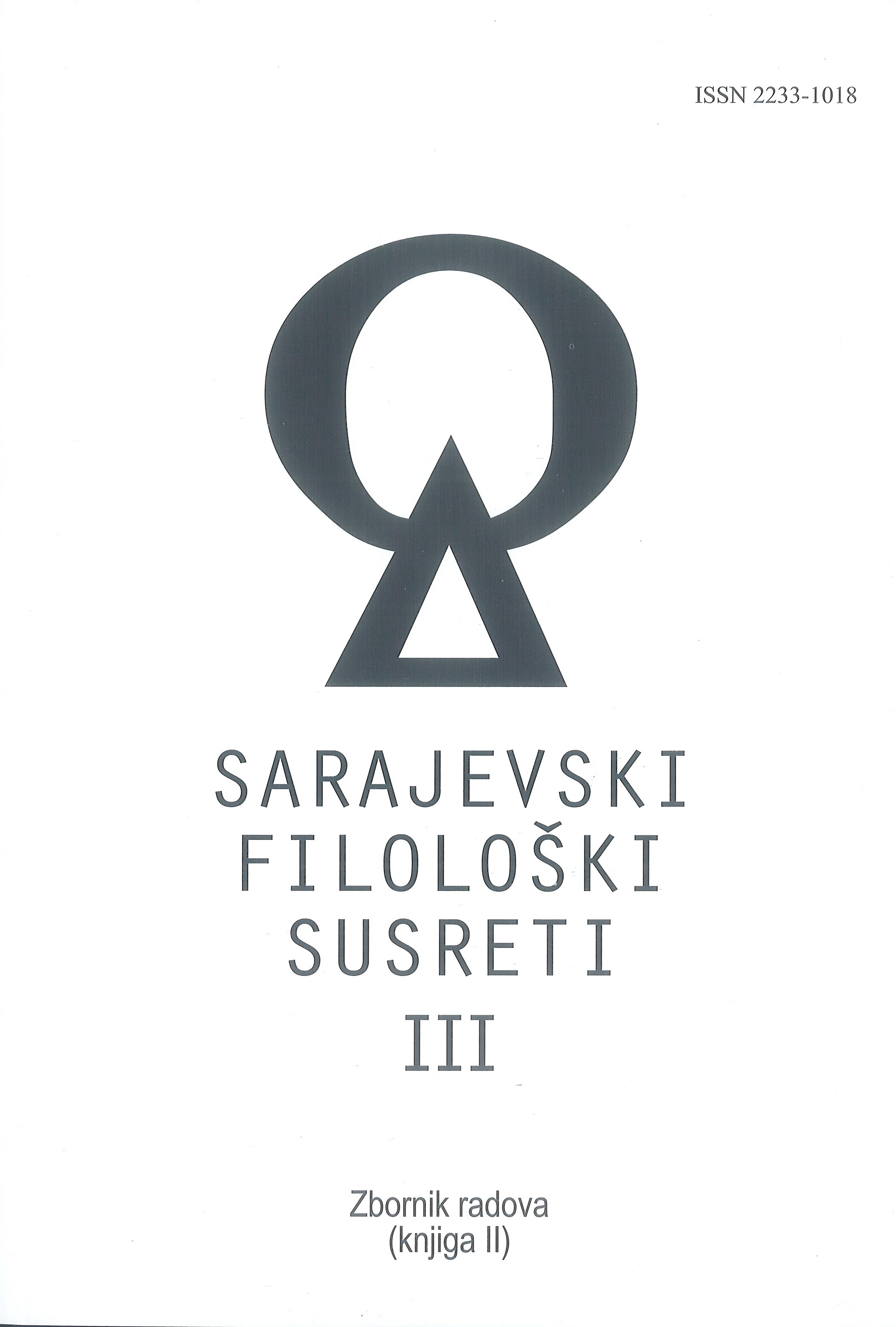MUZEJ, AMERIKA, GYNAECEUM ILI RATIŠTE - GDJE SE ZBIVAJU PRIČE O RATU 90-IH U JUGOSLAVIJI?
MUSEUM, AMERICA, GYNAECEUM OR THE FRONTLINE? - THE SETTING IN STORIES ABOUT THE 1990S WAR IN FORMER YUGOSLAVIA
Author(s): Ewa SzperlikSubject(s): Language and Literature Studies, Psychology, Military history, Bosnian Literature, Croatian Literature, Serbian Literature, Transformation Period (1990 - 2010)
Published by: Bosansko filološko društvo
Keywords: post-Yugoslav war; category of space; “weak characters”; literary escapism; inexpressiveness of suffering/trauma; (anti)war literature;
Summary/Abstract: This paper is an attempt to analyze and read the selected prose, i.e. fictional texts about the war in former Yugoslavia, paying particular attention to the category of space—the setting. The works by M. Jergović, N. Veličković, B. Dežulović and A. Lazarevska depict traumatic history of the post-Yugoslav conflict from the “bottom-up” perspective (E. Kazaz), seen by an individual, a “weak character” (J. Matanović). In the works analyzed, the “victorious, top-down narrative” gives way to the individual, not collective experience of trauma and living in wartime. In some cases, the main characters are situated in the restricted, confined, claustrophobic spaces, and in other cases, the action takes place in an open space, and is even relocated to the Atlantic Ocean (literary escapism). The individual war experience of the characters is traumatic not only because of expressiveness and inexpressiveness of the suffering (D. LaCapra) with the instrument of language. Therefore, in writing about war some authors incline towards an intimistic reflection of their inner state, while others to the poetics of the absurd, grotesque, tragicomedy. The space and setting is not a random construction, but has a certain meaning and purpose. The text also raises the issue of terminology which is so important for many researchers: here the terms “war literature” and “anti-war literature” play the main role.
Journal: Sarajevski filološki susreti: zbornik radova
- Issue Year: 3/2016
- Issue No: 2
- Page Range: 320-339
- Page Count: 20
- Language: Bosnian, Croatian, Serbian

